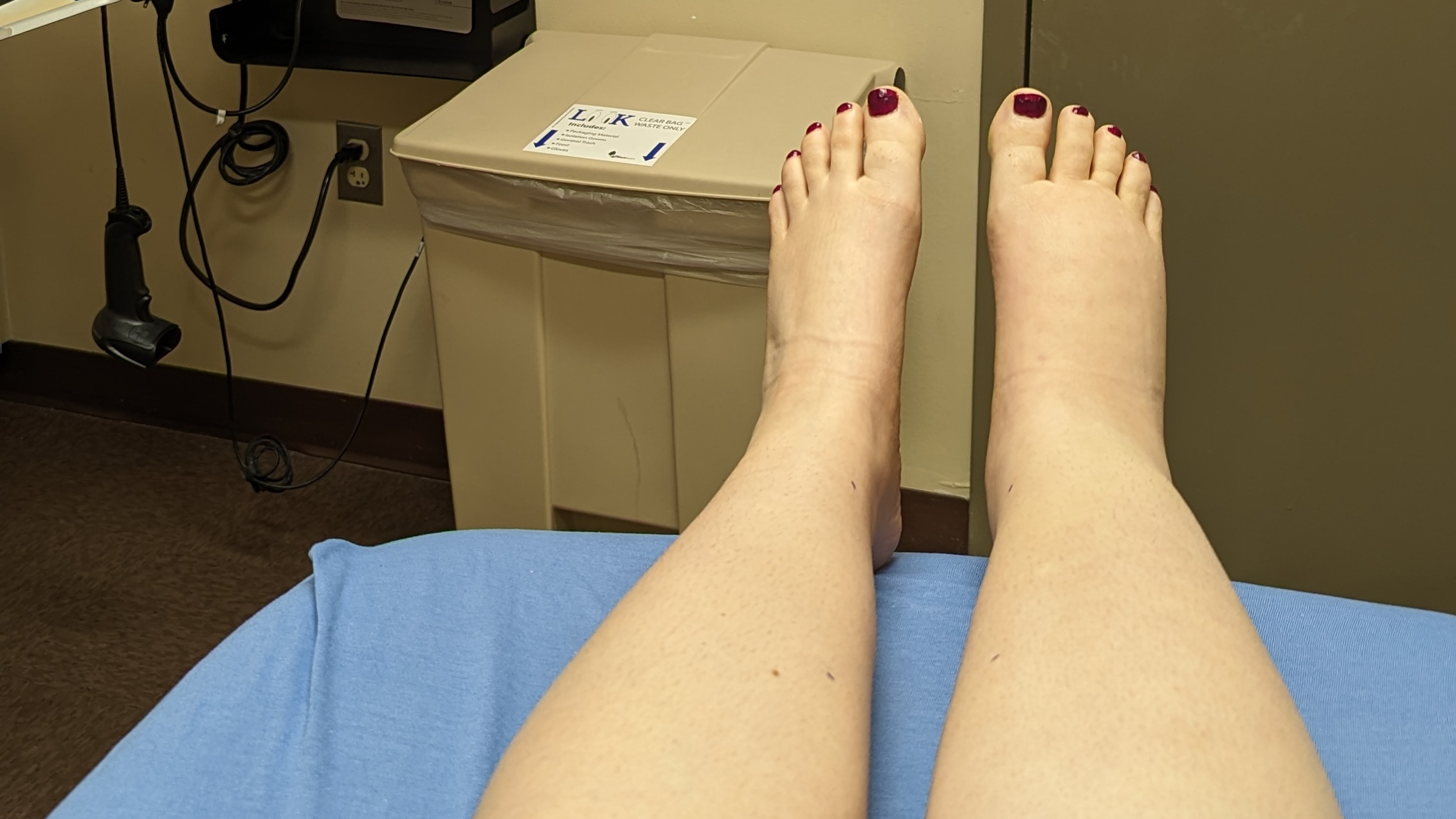As patients, we’re not always privy to what’s going on in the world of lymphatic research. The information’s out there, but it’s not always super accessible to most of us—if you don’t know where to look or aren’t able to translate the medical jargon, it’s easy to miss out on some pretty big stuff.
In addition to that perceived barrier, it’s common for lymphedema patients to feel somewhat neglected by the medical community: many of us have experienced misdiagnoses or a lack of access to treatment due to the paucity of lymphedema awareness among medical professionals; many cancer patients aren’t even warned of lymphedema as a side effect of their cancer treatments. Bereft of any answers or explanations, we’re left in the dark, feeling along the wall for a light switch.
I’ve felt that way myself, having gone without a diagnosis (and therefore without treatment) for fourteen years despite being seen by numerous doctors and specialists throughout my childhood. Even now, with such a wonderful team of certified professionals at my lymphedema clinic, I oftentimes feel like the mainstream medical community doesn’t think much about us lymphies. I know there’s research going on, but I get impatient: when are we getting a magic pill? When will we have a cure? For something that’s so widespread and common, why don’t we hear more about lymphedema in the mainstream?
Last week, my assumptions about lymphatic research were completely turned upside down—in the best way possible! Through sponsorship by the lovely people at the Seattle-based company North American Rehab, a national supplier of lymphedema products with a focus on customer care, I was able to attend the National Lymphedema Network 12th International Conference in Dallas, Texas.

For three days, I was immersed in the world of lymphedema and lymphatic research. Stationed at North American Rehab’s booth in the exhibitor hall, I got to meet lymphedema therapists, nurses, doctors, researchers, manufacturers of garments and treatment supplies… it was like a “Who’s Who” of the lymphedema and lymphatic research communities! At one point I was walking down a hallway and saw Dr. Stanley Rockson (!) speaking with someone just a few feet away from me, and I felt like I had spotted a celebrity.
Being at the conference was like taking a peek behind a curtain and seeing all the bustling activity that is the lymphatic research community. Just being in proximity to all those brilliant minds and passionate medical professionals was invigorating; I was reaffirmed that there are tons of people—smart, talented, compassionate people—in our corner, working hard to better understand and treat our lymphedema.
Although I wasn’t able to attend any of the lectures or symposiums, I did get to try some cool treatment devices, like the PhysioTouch (also known as LymphaTouch). This device uses negative pressure to stretch the skin and the tissue underneath, dilating the endothelial openings of lymph vessels and improving the flow of lymph. (Think manual lymph drainage or using a pneumatic compression pump, but much more focused and controlled.) It was such a fascinating experience to try out the device, and I can see why so many lymphies love using it as part of their treatment!

Another cool device I got to try was an instrument developed by the Delfin company in Finland. This instrument, called the Moisture Meter D Compact, measures interstitial fluid and edema in biological tissues.
We used the Moisture Meter before and after my PhysioTouch treatment and compared the measurements—it was a neat little informal study that quantified how the PhysioTouch broke up my fibrotic tissue. It was also really insightful to see where exactly I have the most fibrosis in my affected limb, something I’ve never had measured before. Now I know where I need to focus my manual lymph drainage massages in order to really work on breaking up that deep, hardened tissue.

I had such a great time at the conference—it was truly a whirlwind couple of days! I met so many fabulous people, including some I’ve previously “met” online as well as Lymphie Life readers from around the world. It was almost like being in a refreshing yet bizarre parallel universe, where speaking openly about lymphedema was the norm instead of hiding it. I felt comfortable, and it was nice to be able to share my experiences as a woman with lymphedema with people who genuinely sought to understand.
Being there was inspirational and exhilarating, and it was incredibly validating to see just how much is going on in the world of lymphatic research. I’ve never felt so empowered as a lymphedema patient as I did there, surrounded by such passion, innovation, and—most of all—hope.
There is so, so much happening in lymphatic research right now; just because we may not be hearing about it all the time doesn’t mean it’s not going on! In fact, lymphatic research has been exponentially increasing since 1990, which is profoundly encouraging as we continue moving forward.
If you’re interested in learning more about the lymphatic system and the current state of lymphatic research, check out this awesome talk by Echoe Bouta, Ph.D., courtesy of the Lymphatic Education and Research Network online symposium series. It’s a little heavy on medical jargon and concepts, which can be intimidated to those of us (myself included!) that aren’t familiar, but I still recommend giving it a watch—you’ll learn a lot!
I want to give a big THANK YOU to the folks at North American Rehab for making it possible for me to attend such a life-changing event!





Leave a Reply